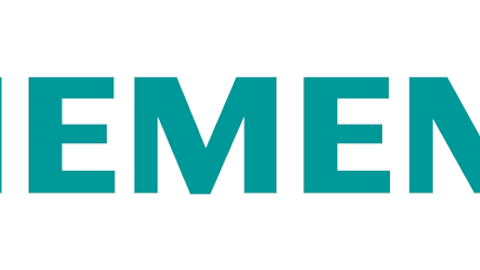What Are Illinois Tool Works’ Growth Prospects?
Illinois Tool Works’ management is telling shareholders to expect excellent total returns of 12% to 14% a year over the long-run. The image below shows where these returns will come from:

Source: 2015 ITW Investor & Analyst Day Presentation, slide 70
Let’s take a look at these total return driers one by one to see if they are attainable.
Will Illinois Tool Works grow its revenue at 5% per year?
The underlying assumption is that global GDP growth will average 3% a year. That’s a reasonable assumption. Illinois Tool Works’ management believes it can grow 2 percentage points faster than global GDP on a continuous basis.
The company’s management has shed non-core brands to focus on growth. Organic revenue is expected to grow 3% in fiscal 2015, in a difficult operating environment. During better economic times, it is likely the company will grow revenues at around 5% a year. I estimate the company’s long-term revenue growth at 3% to 5% a year.
Will Illinois Tool Works be able to expand its operating margins at 4% to 5% a year?
This is (obviously) impossible over the long run. No company can grow margins indefinitely. 4% to 5% operating margin growth per year is very ambitious. The company can likely hit these numbers in the short run as management sheds non-core business line. Over a decade long period (or longer), operating margins cannot expand at 4% to 5% a per year. A fairer estimate is 1% to 5% per year margin growth. This gives management the benefit of the doubt, while tempering expectations at the low end.
Will Illinois Tool Works continue to repurchase 1% to 2% of shares outstanding and pay 2%+ in dividends?
The final two growth drivers for the company are share repurchases and dividends and share repurchases. I have no doubt Illinois Tool Works will repurchase 1% to 2% of its shares outstanding every year. The company currently has a 2.4% dividend and a long history of dividend increases, so there’s little reason to doubt this as well.
A more realistic estimate of the company’s total return potential is below:
– Revenue growth of 3% to 5% per year
– Margin improvements of 1% to 5% per year
– Share repurchases of 1% to 2% per year
– Dividend yield of 2.4%
This gives Illinois Tool Works investors an expected total return of 7.4% to 14.4%.
Recession Performance
Illinois Tool Works Inc. (NYSE:ITW) remained profitable throughout the Great Recession of 2007 to 2009. With that said, the company saw a steep decline in earnings-per-share in 2009 during the worst of the recession.
The company’s earnings-per-share throughout the Great Recession and subsequent recovery are shown below to illustrate how the company performed in that time period:
– 2007 earnings-per-share of $3.36 (high at the time)
– 2008 earnings-per-share of $3.05 (beginning of decline)
– 2009 earnings-per-share of $1.93 (recession low)
– 2010 earnings-per-share of $3.03 (partial recovery)
– 2011 earnings-per-share of $3.74 (new high)
The company’s reliance on the automotive industry and capital expenditures from other industries hurts the company during recessions.
Businesses, governments, and consumers tend to put off large purchases and capital expenditures when the future is uncertain.
As a result, Illinois Tool Works sees steep declines in earnings during recessions. The company did rebound quickly, and achieved new highs in earnings-per-share by 2011.
Final Thoughts on Illinois Tool Works
Illinois Tool Works Inc. (NYSE:ITW) is a high quality business that is experiencing strong earnings per share growth from efficiency gains.
The company’s long-term growth prospects are bright as evidenced by above-average expected total returns.
Illinois Tool Works is currently trading for a price-to-earnings ratio of 18.0. The company is likely somewhat undervalued at current prices given its shareholder friendly management, durable competitive advantage, and above-average expected total returns.
Illinois Tool Works ranks in the top 40% of businesses with 25+ years of dividend payments without a reduction using The 8 Rules of Dividend Investing.
Disclosure: None




